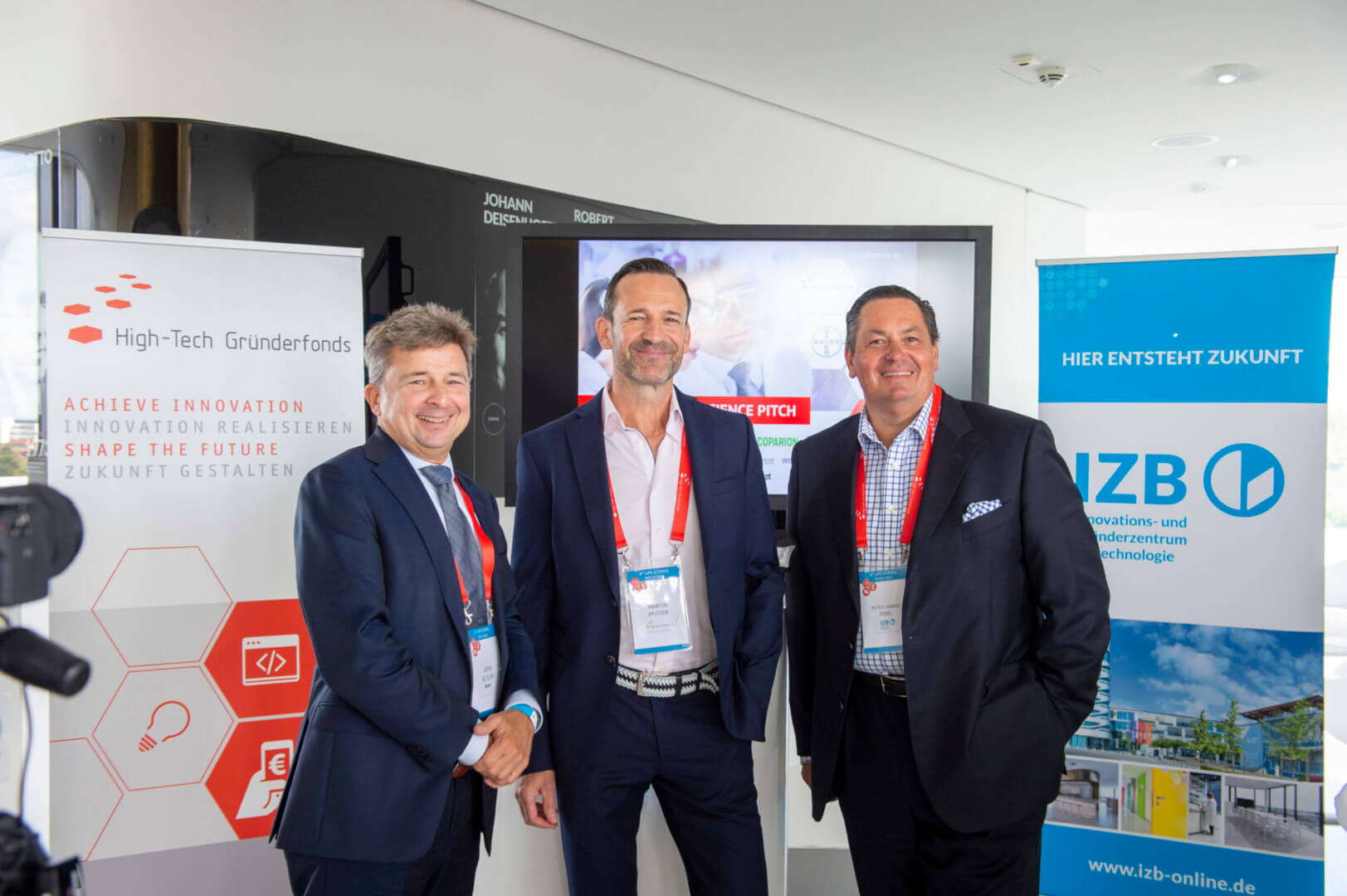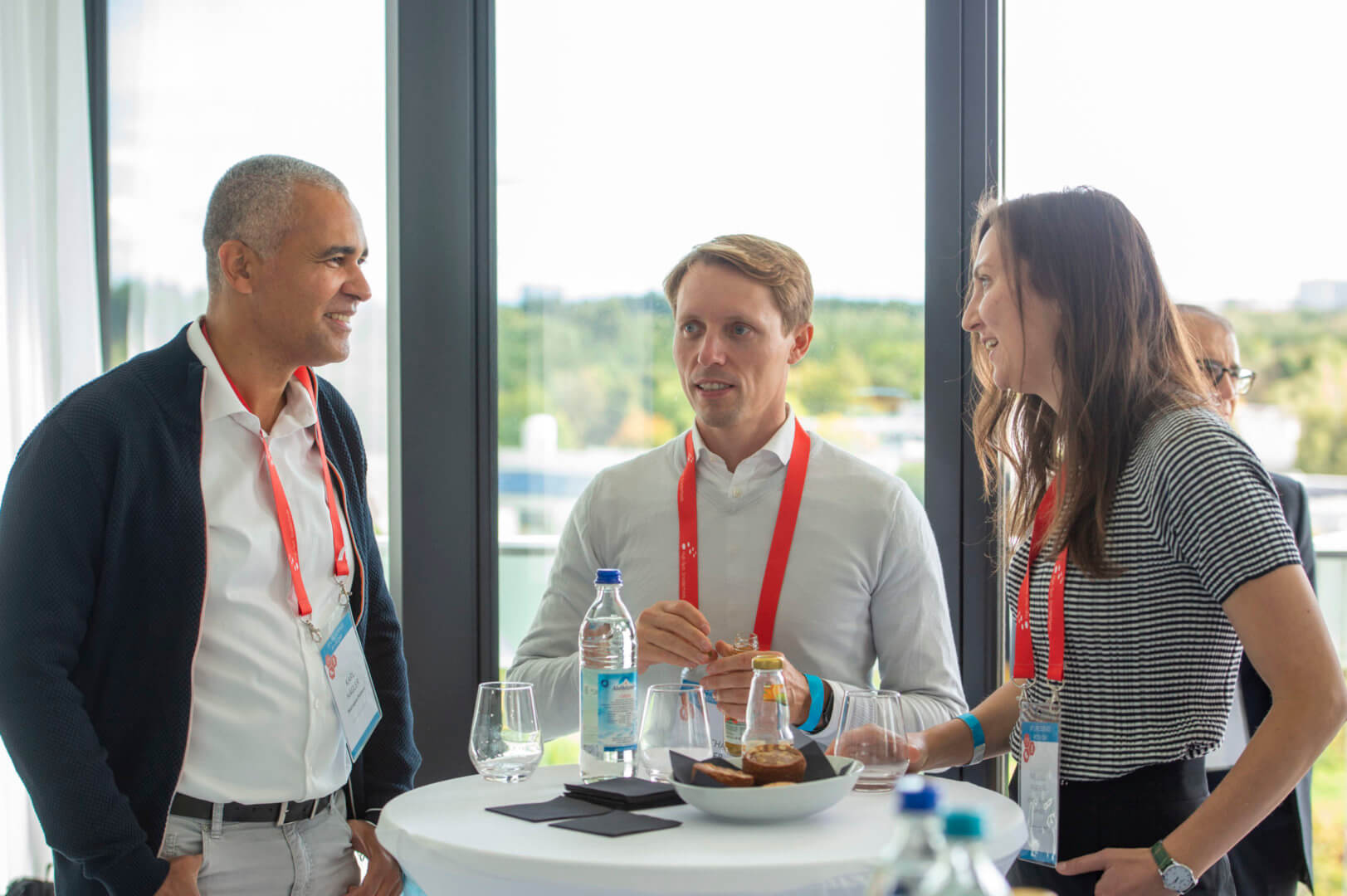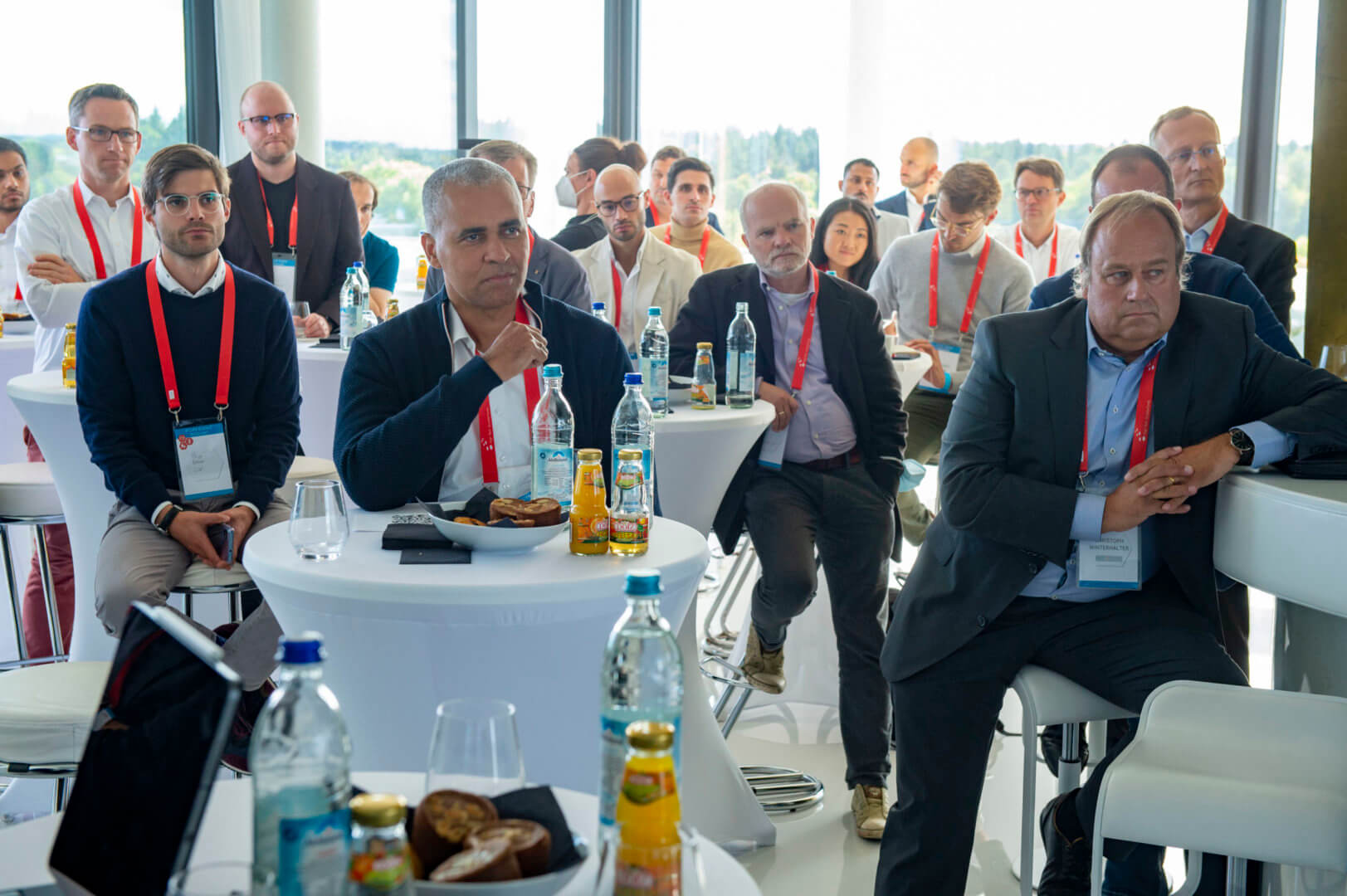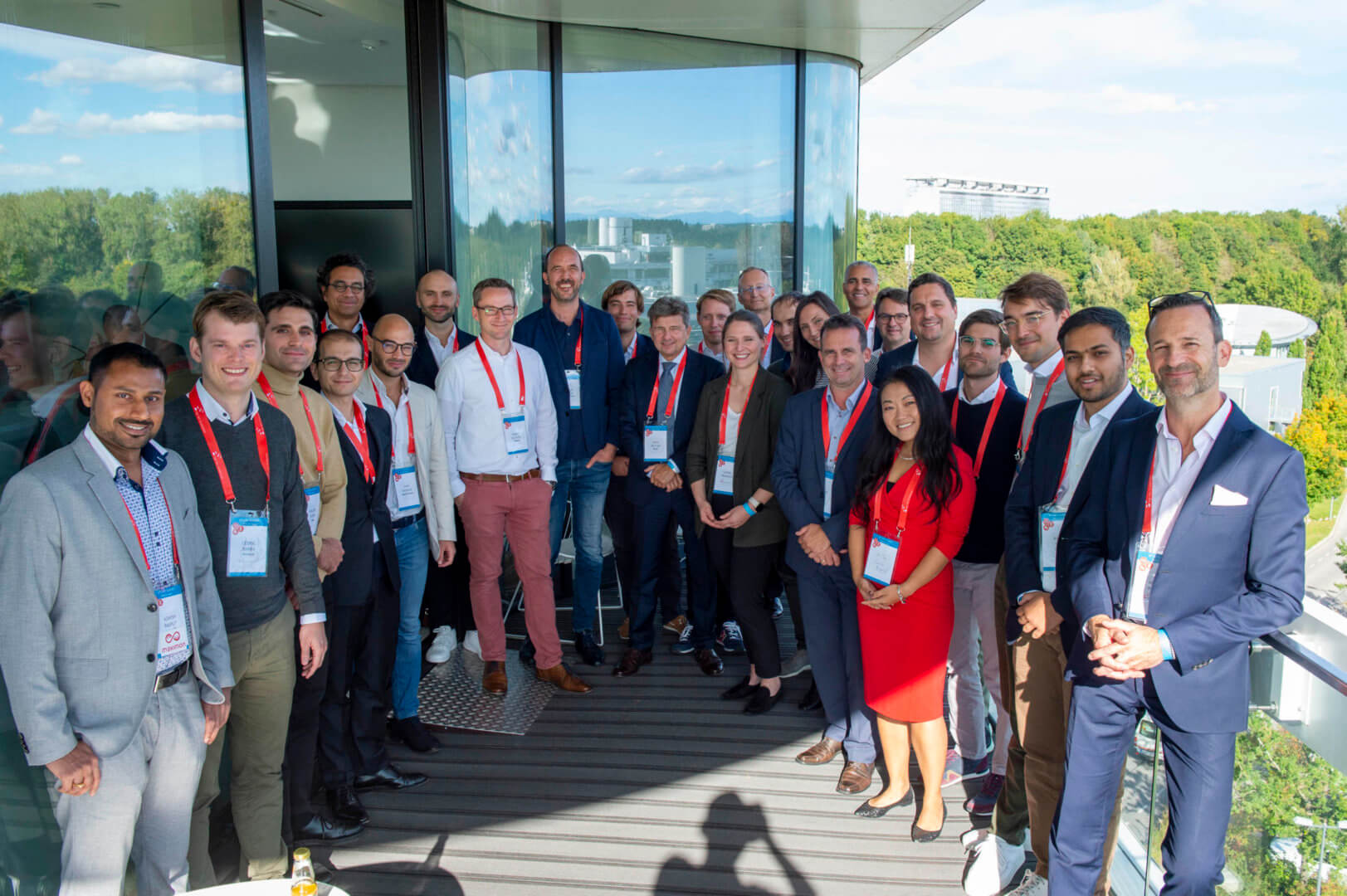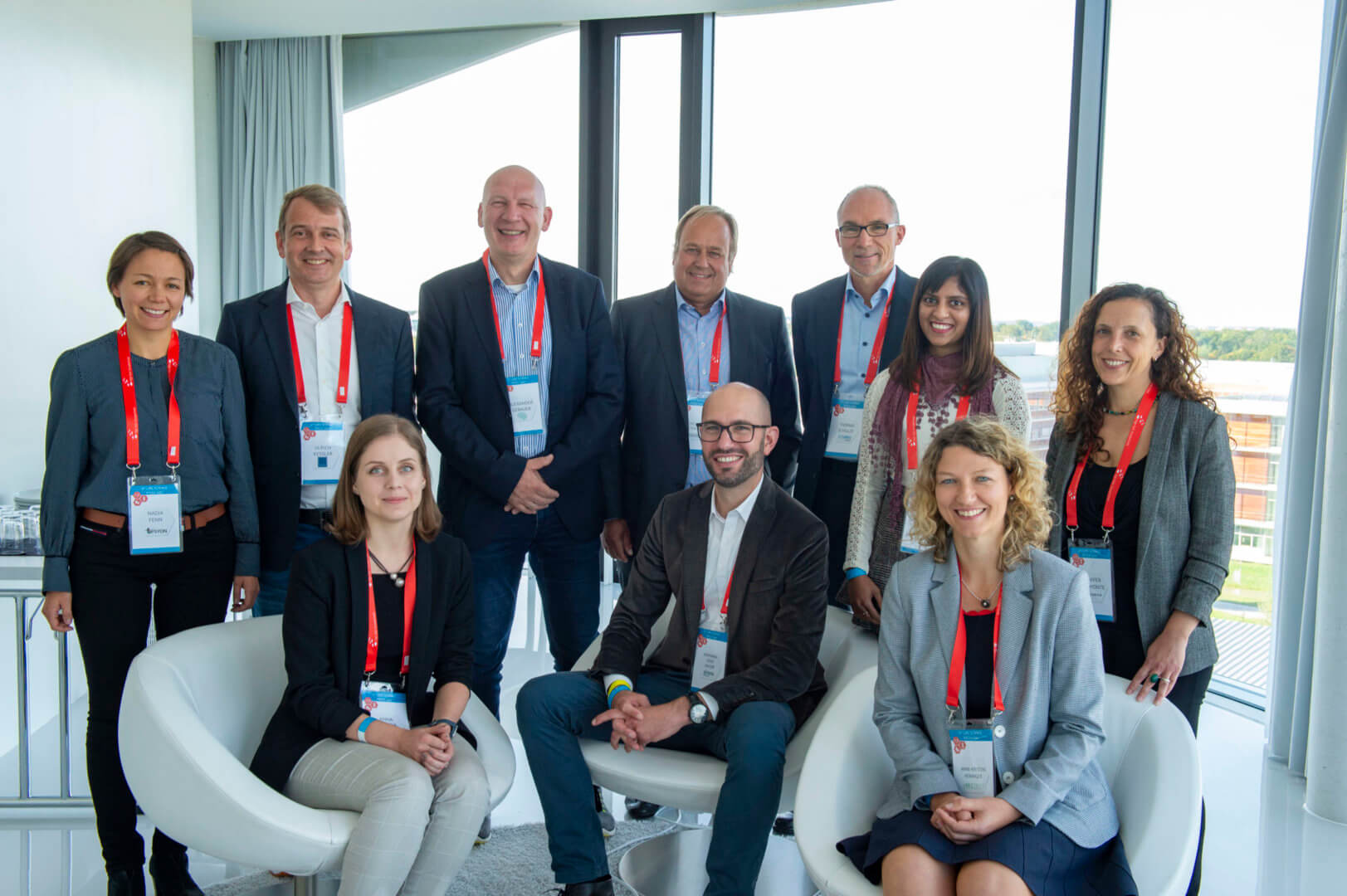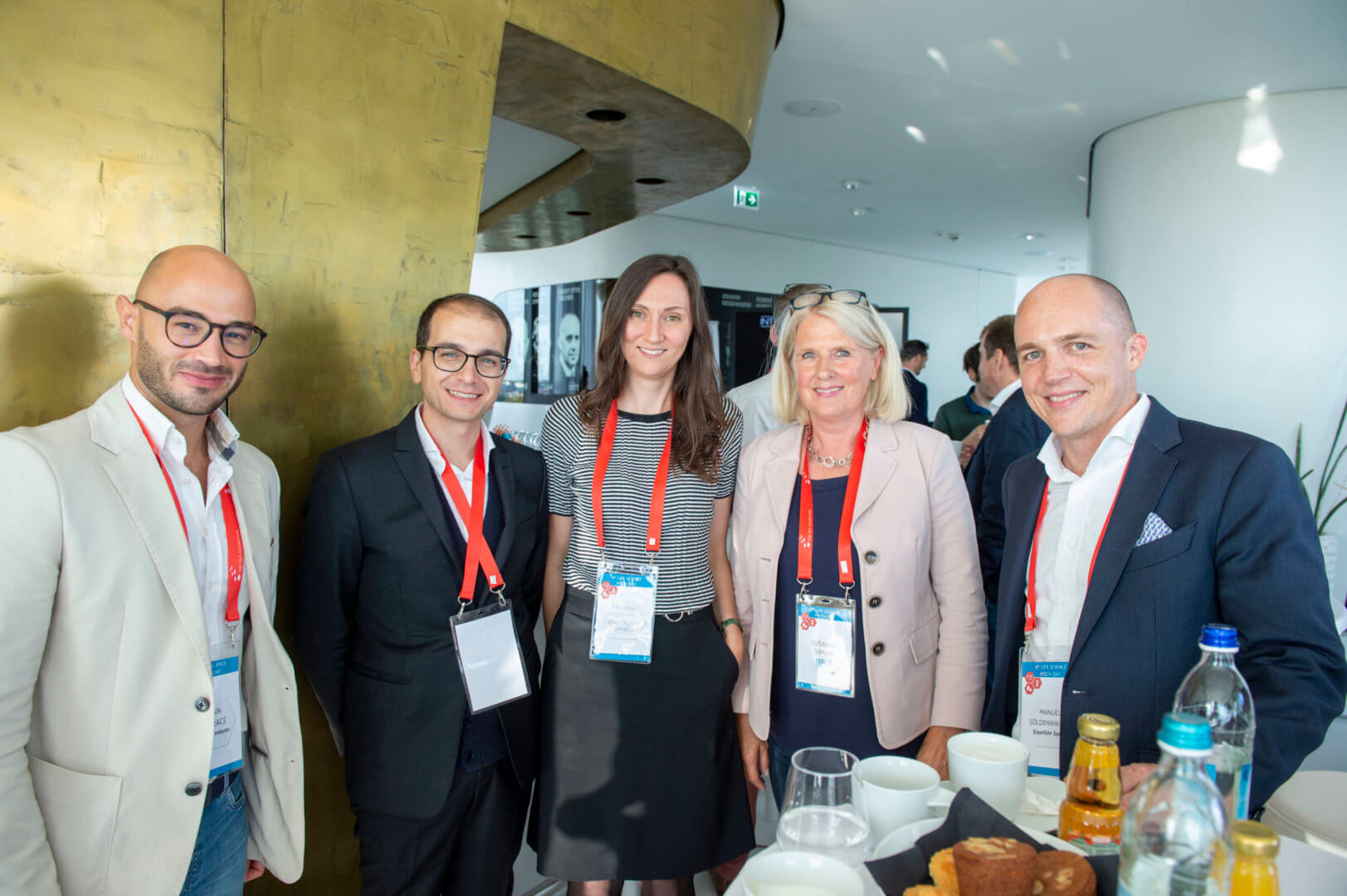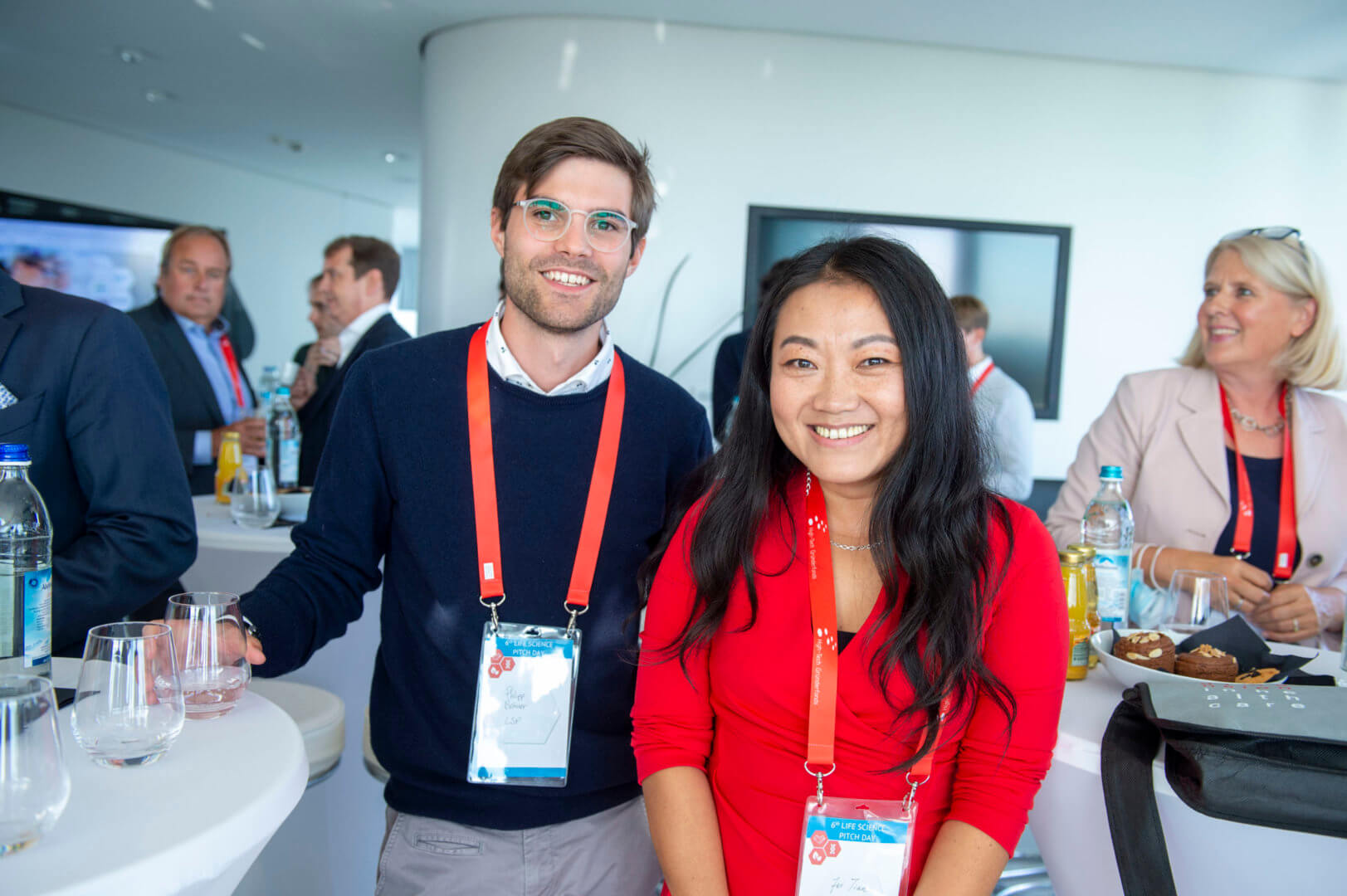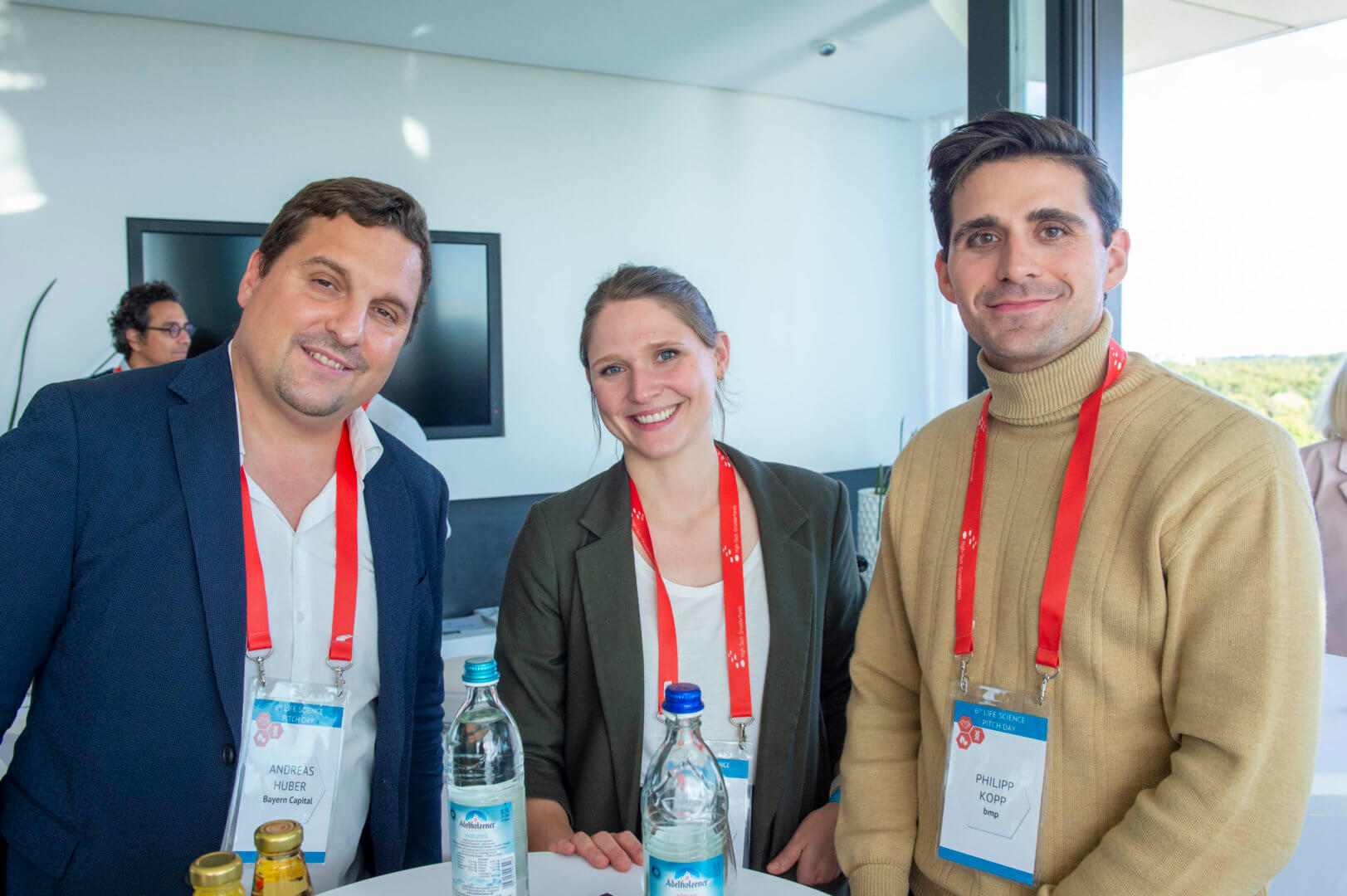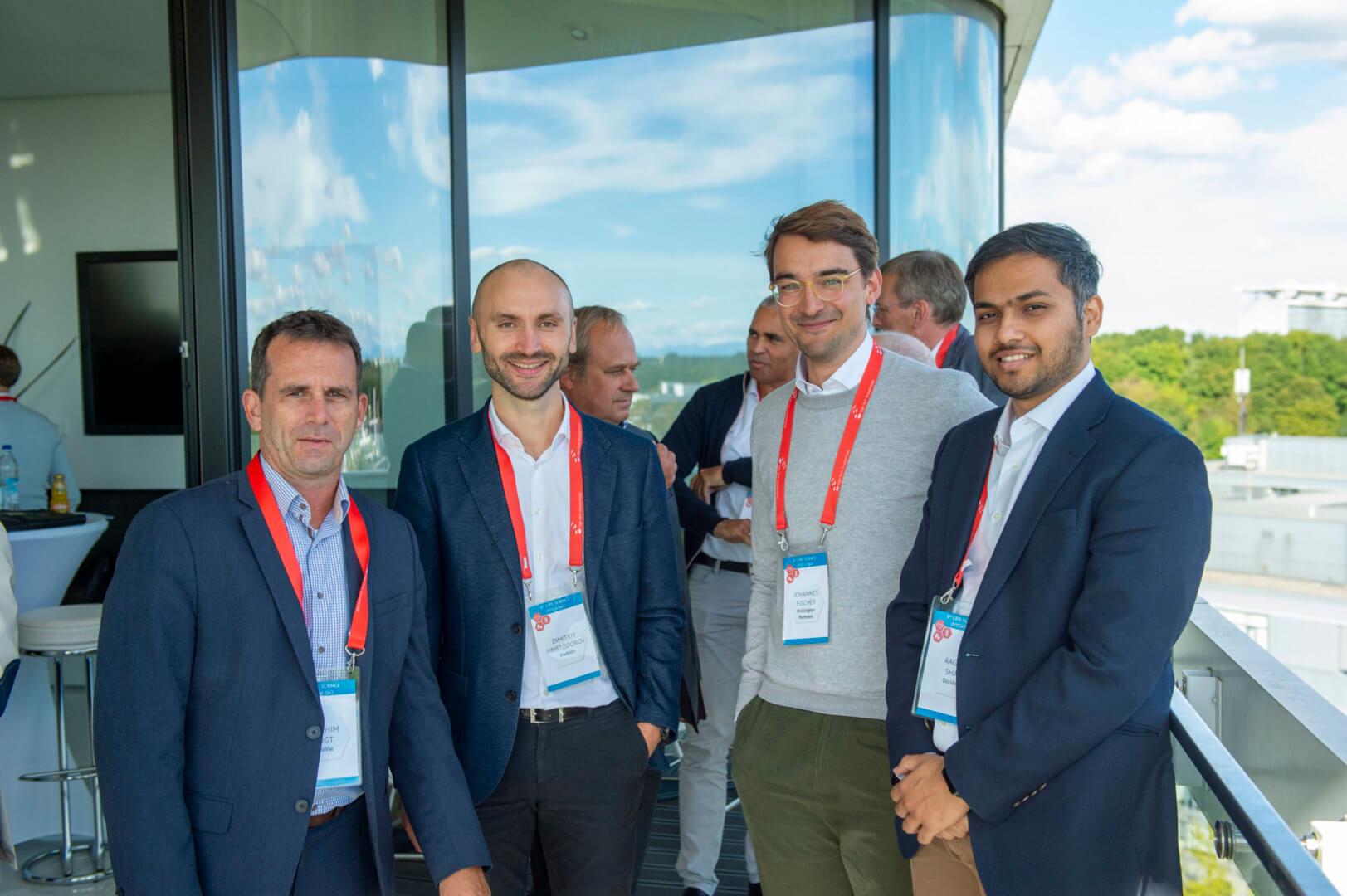Life Science Pitch Day: Real entrepreneurs, real innovation, real added value
It was a special moment when CureVac founder Ingmar Hoerr shared his business story at the Life Science Pitch Day. More than 30 start-ups, investors, and scientists took part in the event at the end of September, which was organised by High-Tech Gründerfonds (HTGF) together with partners Bayer, Boehringer Ingelheim and the Innovation and Start-Up Center Biotechnology (IZB). We spoke to the event organisers at HTGF: Dr. Caroline Fichtner and Dr. Martin Pfister, both HTGF Principals, touched on the latest trends and talked about the influence that the increase in media reporting has had on the sector during the pandemic as well as the topics that dominated the event.
The Life Science Pitch Day took place at the end of September. What was it all about exactly?
Caroline: Pitch Days take place in various formats. Start-ups can apply to take part, approximately ten of which get the chance to present their business ideas. We then invite investors from the sector as well as HTGF fund investors to attend. This format is not about presenting our own portfolio, which is why we always target companies outside of our portfolio as well as start-ups that do not necessarily need to still be in the seed phase. The Life Science Pitch Day, however, specifically concerns biotech and pharma projects.
What makes your Pitch Day so special?
Martin: Developments in the biotech scene are very wide-ranging. It’s important that investors and young development teams are able to find a good level of communication at an early stage. This is something we can offer at such dedicated events.
Caroline: The field of drug development is very distinctive in its own right and is therefore very particular when it comes to addressing potential investors. It must adhere to long development cycles, strict provisions and specific development sequences. All of this means that the sector is very capital-intensive. Investors therefore have to dive deep into topics and posses the necessary experience.
Do you share the opinion that the life sciences sector as a whole and biotech especially has experienced an additional upswing as a result of the pandemic?
Martin: Definitely. We’re seeing that start-ups in the fields of biotech and pharma have been able to attract high levels of investment in the last couple of years. In Europe too, large financing rounds are commonplace. The pandemic and the subsequent focus on German vaccine manufacturers such as BioNTech and CureVac have obviously brought added attention. We’re now witnessing a shift to topics that have suddenly become more relevant, such as mRNA, gene therapy and antibodies. This has also been reflected in the companies taking part in our Pitch Day.
At the same time, media reporting on the life sciences and biotech has also increased in the last few months.
Caroline: Even before the pandemic, we and many experts were aware that biotech is an innovative field with real entrepreneurs and real successes creating real added value. But public discourse has now shown the public at large how great the potential for innovation in this sector is. Previously, the sector’s image was dominated by the notion of “nerdy” scientists and researchers. The issues being researched were too complex for the public to get a handle on.
Martin: It’s great to see the sector receiving more media coverage. This is something we’ve witnessed first hand with companies from our portfolio. Cardior, for example, is a company researching a treatment against heart failure on the basis of mRNA and which is now receiving increased attention after attracting EUR 64 million in financing. The increased media reporting also provides a greater incentive for others to start up businesses. In addition, you have successful biotech and life sciences entrepreneurs who have been able to sell their companies after presenting patient efficacy data and are now launching new start-ups.
Was there a trend that dominated the Pitch Day?
Caroline: We’re seeing a lot of young companies in the field of oncology, i.e. cancer research. And platform technologies are being further developed. Research is being conducted on technologies that serve as a basis for developing several drugs to combat various diseases, in a similar way to how BioNTech operates. It was also interesting to see a number of companies from the field of genetic research who are working on a type of CRISPR/CAS 2.0, and are thus further developing the genetic scissors – a really exciting platform.
Martin: Another remarkable development this time around was the fact that many of the start-ups had already received funding – often within an academic setting. They had been able to make great progress with their innovations within this framework and are now ready to take them out into the open. This makes their developments more tangible, with projects becoming more exciting as a whole for potential investors.
Were there any companies that particularly stood out for you?
Martin: There truly were a lot of good ideas. With RecTech, for example, we saw an interesting start-up from the field of genetic research that is looking to cure genetic diseases through its work. They develop high-precision genetic scissors, known as designer recombinases, which can correct errors in the genome and which, in contrast to other enzymes such as nucleases, work faultlessly.
Caroline: Another pitch by an as-yet unnamed NewCo was also very intriguing – it’s researching a new Alzheimer’s drug based on small molecules. In contrast to current treatments, this drug would be administered simply as a tablet, and preclinical tests have shown the drug to be effective with fewer side effects. We heard about so many fantastic innovations. It’s great to see what’s going on in the scene.
A special guest at the event was CureVac founder Ingmar Hoerr, who shared his business story. You interviewed him, Martin. What impressed you about him?
Martin: It was a fascinating discussion because he spoke about the early days of CureVac. He also told his own personal story, which – and this is something that’s often underestimated – had a lot to do with adversity and being different. His courage to pursue an untapped, disruptive topic such as mRNA vaccines in the face of much resistance was particularly inspiring for myself and the many entrepreneurs at the event.
So do you have any tips to offer? Beyond the Pitch Days, you work with investors and founders on a day-to-day basis. Is there any advice you’d like to share?
Caroline: I’ll start with the company founders: Make sure to focus! With platform technologies in particular, there’s a danger that you’ll get lost along the way because the opportunities are endless. This is something we experience on a regular basis. Set yourself a clear target and don’t be too swayed by early offers from larger partners. This is something I always advise against.
Martin: I’d also advise company founders to search for a partner that can help you navigate the jungle of options on offer. We touched on it before: the scene is booming and there are a lot of new developments. As a founder, you need an investment partner that you see eye to eye with and that knows what it’s doing. At HTGF, we’ve covered the market for more than 16 years now and have in-depth knowledge of the scene. We have good relations with start-ups and investors and know just how important know-how as well as trust between the individual stakeholders is. This is another reason why we stage events like our Pitch Day – to help create a common foundation for long-term success.
